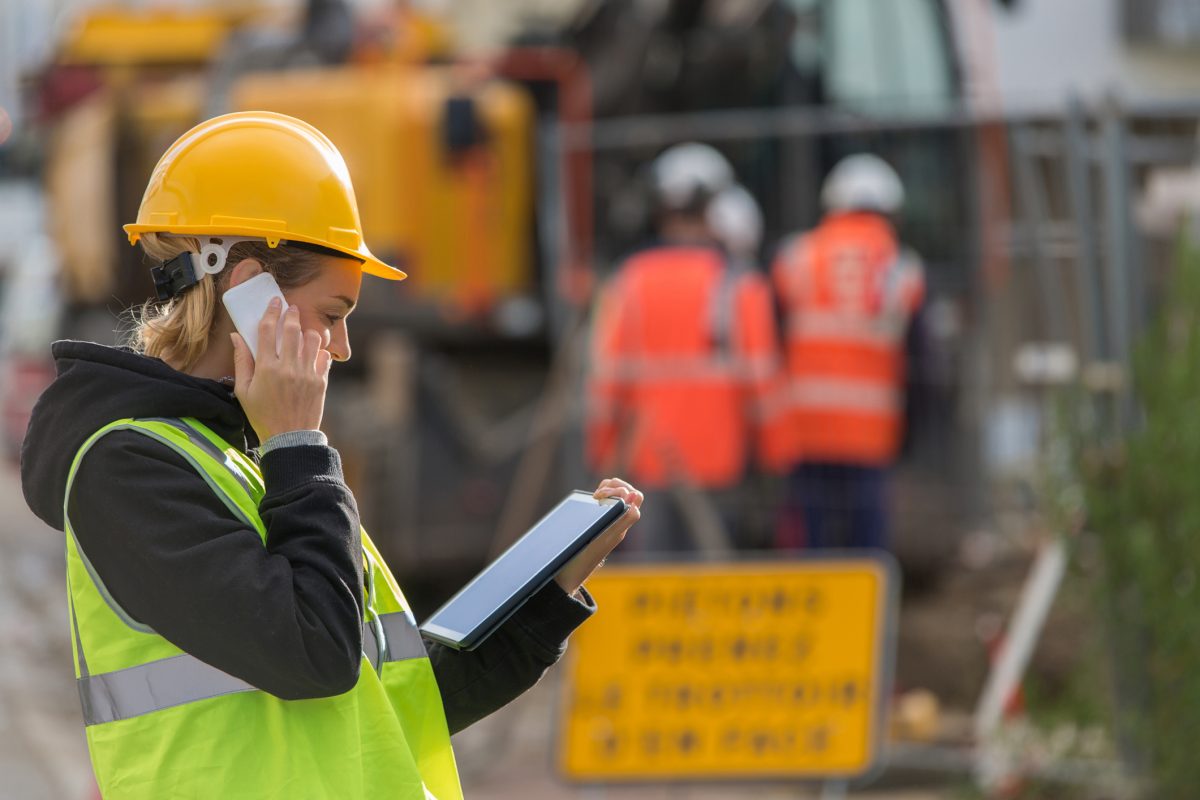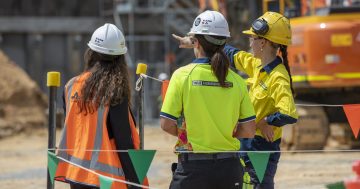
The construction union has said that a major barrier for women entering the construction industry is a lack of available toilets and sanitary bins. Photo: File.
Having access to appropriate toilet and sanitary facilities continues to be a major barrier for women entering the construction industry, its union has said.
Senior Legal Officer and Women’s Officer for the Construction Forestry Maritime Mining and Energy Union (CFMMEU) Rosalind Read told a committee inquiry into access to period products and facilities in the ACT that construction continues to be a heavily segregated industry where women are forced to work on sites without any toilet access at all.
Ms Read said it was normal for women to turn up to work at a job site and be one of only a couple of women on the job, or to be the only female worker at a government depot.
“Quite often, there are no amenities available to these women at all. There is no point in having a strategy about which toilet is the best to use when there is no toilet available in your workplace,” she said.
She shared an example of a woman working on a government road project who was told by the supervisor there were no toilets and she’d need to urinate behind a tree.
“That happens so often,” Ms Read said.
“The issues for those women are how to dispose of your period product, how to change your period product and whether you should go to work at all.”
For example, a woman working on a rural job site was forced to wrap up used tampons in a plastic bag and keep them in her pocket for the remainder of the day because even though there was a Portaloo, there was no sanitary disposal bin.
Ms Read said access to those facilities should be mandatory. She further noted education did play a significant role in changing those habits, but changes to regulation would also help.
Embarrassment and fear played a big part in many women not feeling comfortable with speaking to their generally male supervisor or foreman on site, Ms Read noted.
“That stigma, when combined with economic vulnerability … is a risk to the health and safety and an affront to the dignity of the women working in [construction].”
Ms Read had also shared her own story of being a 10-year-old with a period – one she reckoned everyone who menstruated could relate to.
But she said she had been privileged compared to the stories of construction workers.
“Do you recall what you kept in your pockets at the age of 10? I do, because I started menstruating [then] and so sometimes I was keeping a pad in the pocket of my school uniform,” she said.
“The other thing I started keeping in my head was a mental map … of how to deal with the logistical difficulties of being in Year 5 with your period.”
That map included which toilet had a sanitary bin, how to get to that toilet, what to do if that specific one was occupied and what to do on sports days when that particular uniform did not have a pocket.
Her teachers in Years 5 and 6, as well as the school principal, were all males, which meant Ms Read did not feel comfortable speaking to them about her period.
But the need for a mental map to manage her period did not go away when she left high school. Instead, Ms Read told the committee this was something everyone who menstruated dealt with.
But women in construction, Ms Read said, do not get the privilege of making those maps if they cannot access safe amenities.
Only 2.6 per cent of people working in construction in the ACT were women, according to the latest released Census data (2016).
The government aims to increase this to 10 per cent in the next few years.
The ACT Government recently announced it would require the successful construction company building Strathnairn School to have a 100 per cent female management team and women employed by every trade subcontractor.
The Master Builders Association declined to comment.




















